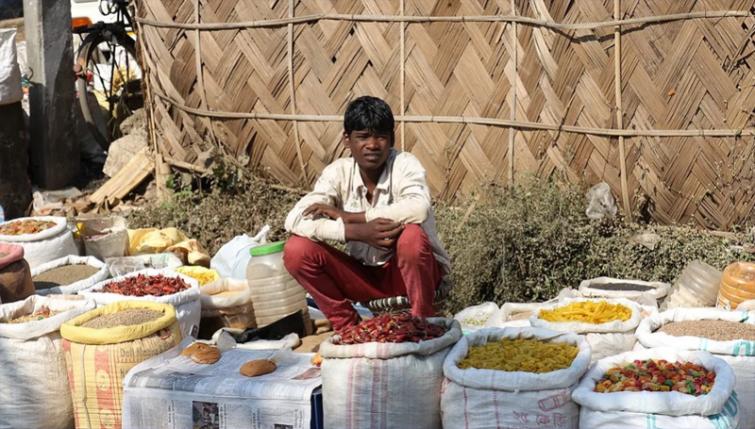
New Delhi/UNI: India needs to take urgent policy actions to address the significant economic slowdown and return the country to a high growth path, the International Monetary Fund has said.
"India is now in the midst of a significant economic slowdown. Growth in the second quarter of financial year 2019/20 came in at a six-year low of 4.5 per cent, year-on-year, and the composition of growth indicates that private domestic demand expanded by only 1 per cent in the quarter. Most high-frequency indicators suggest that weak economic activity has continued into December," it says in a report.
The lender sees several possible factors behind the slowdown. These includes an abrupt reduction in non-banking financial companies’ (NBFC) credit expansion and the associated broad-based tightening of credit conditions, weak income growth in rural areas that has been affecting private consumption, private investment hindered by the financial sector difficulties and insufficient business confidence.
Some implementation issues with important and appropriate structural reforms, such as the nation-wide goods and services tax (GST), may also have played a role, it says.
"Addressing the current downturn and returning India to a high growth path requires urgent policy actions," Ranil Salgado, IMF mission chief for India, said on Monday.
Salgado told at a news conference that the government needs to reinvigorate the reform agenda, with evidence globally indicating it is important to take advantage of its new mandate early in its term.
"The near-term policy mix needs to be mindful of supporting economic activity and restoring confidence, while recognizing significant fiscal constraints. In the medium-term, realizing India’s substantial growth potential depends critically on the implementation of growth-enhancing structural reforms."
On monetary policy, the IMF says, there is room to cut the policy rate further, especially if the economic slowdown continues. However, should inflationary pressures increase (stemming from the recent increase in food inflation and one-off prospective price increases in the auto and telecom sectors or resulting from fiscal pressures), the RBI will have limited room for further cuts.
The IMF sees limited room for fiscal stimulus and stress the need for medium-term fiscal consolidation, given the high level of general government debt and the high interest bill.
"That said, steps could be taken to support growth including, in the short term, by focusing on the composition of expenditures and rationalizing GST and, over the medium term, by focusing on domestic revenue mobilization, decreasing (on- and off-budget) expenditures on subsidies, and enhancing fiscal transparency and thus reducing uncertainty."
On structural reforms, measures to enhance efficiency of credit allocation and governance reforms in the banking sector are urgently needed to strengthen confidence and to put growth on a strong and sustainable footing over the medium-term.
Labour, land, and product-market reforms aimed at enhancing competition and governance, along with measures to improve human capital (education and health), should be critical elements of India’s structural-reform strategy.
Salgado said the IMF will be revising the growth forecast downward in the World Economic Outlook in January. "It will be a downward revision relative to what we have in the Staff Report, but what we have in the Staff Report, right now is what was presented also in the October World Economic Outlook. That is for 6.1 per ent this year, 7 per cent next year. "
Support Our Journalism
We cannot do without you.. your contribution supports unbiased journalism
IBNS is not driven by any ism- not wokeism, not racism, not skewed secularism, not hyper right-wing or left liberal ideals, nor by any hardline religious beliefs or hyper nationalism. We want to serve you good old objective news, as they are. We do not judge or preach. We let people decide for themselves. We only try to present factual and well-sourced news.







